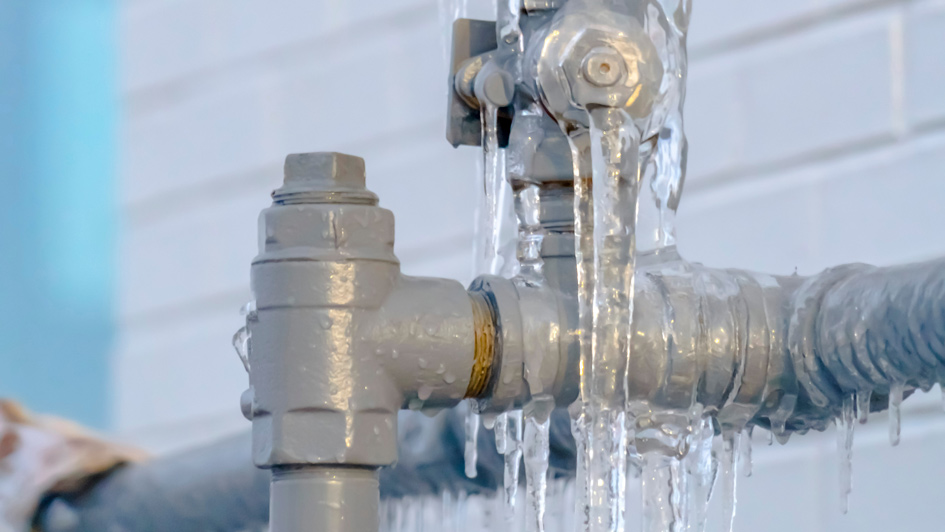
The snowy winter weather brings a fun day sledding down the neighborhood hill or snowball fights in the front yard. That being said, winter weather can be hard on your home. Severely cold conditions can encourage the water lines in your home to freeze and burst, which may cause serious water damage and enduring negative effects.
If your pipes are frozen solid, you might need to contact a plumber in Myrtle Beach to resolve the issue. However, there’s multiple things you can attempt to stop this from happening – and even just a bit of prevention can go a long way.
What Pipes Are at More Risk of Freezing
The pipes at the largest risk of freezing are uncovered water lines. Common locations for uninsulated pipes are within attic crawlspaces, near exterior walls, in the basement or even running under a modular home. Water lines that are not correctly insulated are at the biggest risk.
How to Stop Pipes from Freezing in Your Home
Properly insulating exposed water lines is a good first step to keeping your pipes free of ice. You’ll generally find lots of these materials from a local plumbing company, and could also already have some somewhere in your home.
Be careful not to wrap up other flammable insulation materials where they can catch fire. If you don’t feel safe insulating the pipes yourself, get in touch with your local plumbing services professional in Myrtle Beach to handle the job.
If you do prefer to insulate the pipes on your own, good insulation materials for pipes consist of:
- Wraps or roll insulation: Multiple plumbers, hardware stores and national retailers provide insulation – commonly fiberglass, foam wraps or pipe sleeves – that you can use to wrap or fit around your pipes. They are supplied in numerous lengths and sizes to fit the needs of your home.
- Newspaper: To a decent degree, newspaper can be used as insulation. If the weather is getting colder and you aren’t able to put in more insulation soon enough, consider covering uninsulated pipes in this.
- Towels or rags: If you aren’t able to install insulation and don’t have any newspaper to use, wrapping particularly vulnerable pipes with towels or clean rags as a last-ditch effort may be just enough to keep the cold air from freezing the pipes.
One other preventative step you can take to keep pipes from becoming frozen is to fill any cracks that could allow cold air inside your home. Pay close attention to window frames, which can draw in surprisingly intense drafts. Not only should this help to prevent your pipes from freezing, but it will have the added benefit of making your home more energy efficient.
Five More Ways to Keep Your Pipes from Freezing:
- Open the cabinet doors. Opening the cabinet doors underneath the sinks and other areas of your home with plumbing will allow more warm air from the rest of the room to flow near the pipes.
- Letting water drip. Letting water flow by letting your faucets move even a small amount can help avoid frozen pipes.
- Open interior doors. By opening doors between rooms or hallways, your home can be heated more evenly. This is particularly important if you have a room that is generally colder or hotter than the rest of the home.
- Close the garage door. The exception to the open doors recommendation is the garage door, which you should keep closed – particularly if your water lines are installed under the garage.
- Keep the heat flowing. Experts encourage setting the thermostat at a persistent temperature and leaving it alone, rather than permitting it to get colder at night. Set it no colder than 55 degrees.
How to Keep Pipes from Freezing in an Unused Home
When you’re at home, it’s not difficult to recognize when something breaks down. But what added steps can you try to keep pipes from freezing in an empty home or vacation home when the consequences from a frozen pipe may not be discovered for some time?
As with the main residence, insulating any exposed water lines, opening interior doors throughout the home and winterizing the vacant home are the best steps to take.
Extra Steps to Stop Pipes from Freezing in an Unused Home:
- Leave the heat on. Even though you won't always be home, it’s best to keep the heat on – even if you adjust the thermostat down cooler than you would if you were there. As with a primary home, experts recommend keeping the temperature at no cooler than 55 degrees.
- Shut water off and drain the lines. If you’re going to be out of the house for a long time or are winterizing a vacation cabin or cottage, turning the water off to the house and clearing the water out of the water lines is a good way to keep pipes from freezing and bursting open. Try not to forget to flush the water out of all appliances, like the hot water heater, as well as the toilets. Confirm you empty all the water from the pipes. If you're uncertain of how to drain the water from the pipes, or don’t feel secure handling it yourself, a plumber in Myrtle Beach will be delighted to help.


